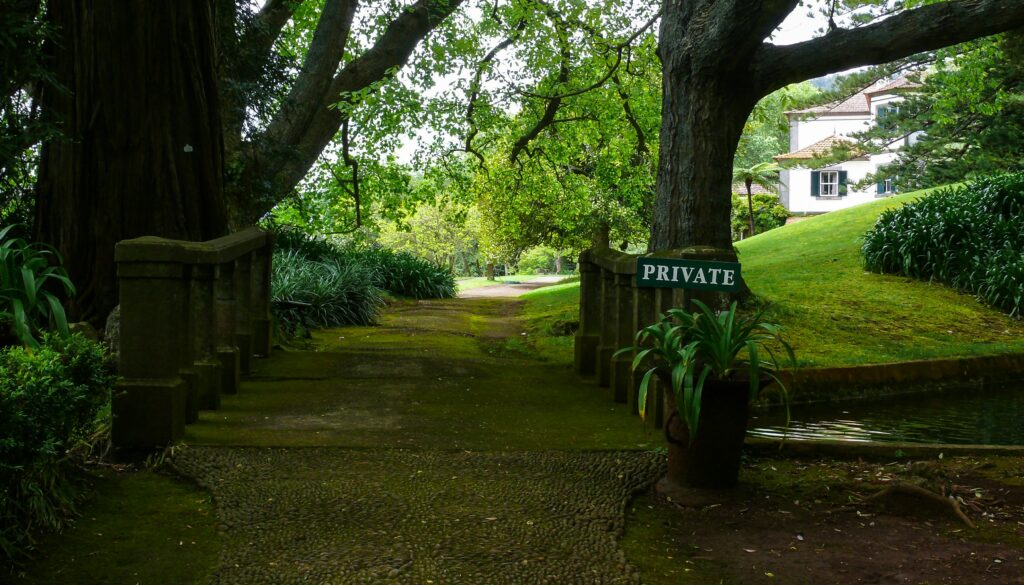Establishing title to land by adverse possession (Part 1)
Establishing title to land by adverse possession; (Part 1)
This is the first of two articles looking at acquisition of title by adverse possession (often referred to as “squatters rights”).
Background: “Adverse possession” of land is possession of land in circumstances which are inconsistent with the title of the true owner. The person in adverse possession (‘the squatter’) must prove “Factual Possession” accompanied by an “Intention to Possess”. The squatter’s adverse possession must be “uninterrupted” for the requisite period. Here we concentrate on the first two aspects: “Factual Possession” and the “Intention to Possess”.
These two elements are distinct, but evidence to support them may be found in a single act. For example, erecting a fence which excludes everyone but the squatter : the nature of the act also involves the intent with which it is carried out.
Where a squatter successfully claims adverse possession, they will acquire a possessory title to the land which they have been occupying.
The squatter does not need to prove that their possession was inconsistent with the intended use of the land by the documentary title owner, but they must prove that their possession was inconsistent with that owner’s title.
Permission from the owner: Possession cannot be “adverse” if it is enjoyed with the express or implied permission of the documentary title owner.
Implied permission will not necessarily arise if the documentary title owner, with knowledge of the squatter’s occupation, stands by and does not attempt to recover possession. There must be some overt act (which may be non-verbal) or clear circumstance from which it can be inferred or implied that permission is being given to do something which would otherwise be a trespass.
In deciding whether there has been a sufficient communication of permission, the court will look at the surrounding circumstances as a whole.
A permission or licence can lapse or be revoked. If possession continues after that point, it might then become adverse.
Factual possession : Possession depends on overt acts. The squatter must show:
- a sufficiect degree of physical custody and control of the land
- single or joint possession, which was exclusive (there can be more than one squatter jointly, but not severally), and
- that they dealt with the land as an occupying owner might have been expected to deal with it, and that no-one else has done so.
Whether the squatter has taken a sufficient degree of control is a matter of fact in each case: absolute physical control may not be practicable. What must be shown is that the squatter has been dealing with the land as an occupying owner might have been expected to deal with it and that no-one else has done so.
Uses of land which may amount to adverse possession include :
- Fencing or other form of enclosure to exclude anyone from the disputed land : this is often cited as an unequivocal and strong act of possession, because it asserts the right of the squatter to control access to and from the land.
However, proof that the fence or enclosure was erected (for example) to prevent animals from straying onto, or away from, the disputed land, or to replace a fence that had been erected by the documentary title owner, might be enough to cast doubt on the adequacy of the squatter’s intention to possess.
There is no requirement that the relevant land must be enclosed in such a way, and to such an extent, that no one could have gained access to it save with the squatter’s permission. The squatter only has to show that their acts were sufficient to amount to physical custody and control, bearing in mind the nature of the land.
Simply maintaining or repairing an existing boundary feature (such as a fence, wall or hedge) does not of itself amount to an assertion of exclusive control over land.
However controlling access to land by locking gates or doors with a key which is in the squatter’s sole custody will constitute good evidence of an intention to possess, but that intention may be negated if the evidence establishes some other motive for securing the property, e.g. to prevent trespass or vandalism.
- Cultivation of land for crops or as a garden is regarded as an unequivocal act of possession, provided that the extent of the land being cultivated is clearly defined.
- Planting trees has been held to be good evidence of possession, and especially if it demonstrates an intention to use and occupy the land or garden.
- Grazing often features in adverse possession claims. In isolation, grazing does not amount to an assertion of an intention to possess (because it is equally explicable as the exercise of a right of pasture). Grazing does not require exclusive possession of the land in question, and non-exclusive grazing licences are commonly granted.
However, in practice, grazing may often be one of a number of activities carried on by the squatter. In these circumstances, the combined whole of the squatter’s actions, including any grazing, may be treated as amounting to an assertion of possession based on the squatter’s overall use of the land.
The fact that the grazing may be intermittent does not of itself prevent a claim of adverse possession, because the nature of the land may dictate that (for example) only seasonal grazing is possible.
- Cutting trees, turf or grass might be considered to be more characteristic of the exercise of a right rather than an act of possession. However, the courts have in some cases found these activities to be a sufficient basis for a claim of adverse possession.
- The carrying out of building works, or works in preparation for the start of building works, is ordinarily regarded as an act of possession of land.
However, the relevant works must have a degree of substance about them. So, for example, the courts have found that the erection of a telegraph pole is not sufficient, but that building a concrete bridge over a ditch is.
Works that are explicable by reference to a claim to the exercise of a right will not be treated as a claim to possession.
- Notices. Simply putting up a notice asserting ownership of, and the ability to control access to, land will not in itself amount to possession. But if the putting up of a notice is followed by acts of enforcement, it probably will.
- Parking cars or caravans in a way which does not exclude the documentary title owner will not ordinarily amount to an act of possession. So, indiscriminate parking of vehicles on waste land is unlikely to be sufficient.
- The grant of a lease (by the squatter) confers exclusive possession on the tenant for the term of the lease. As such it is good evidence of the grantor’s intention to possess.
Actual possession by the squatter’s tenant will constitute actual possession by the (landlord) squatter. Similarly, the grant of a licence to use land for a specified purpose is evidence that the (squatter) licensor considers that they are in control of the land, but any acts carried out by the licensee pursuant to the licence will be treated as acts of the (squatter) licensor.
Intention to possess: The intention to possess is an intention to exercise physical custody and control ‘on one’s own behalf, for one’s own benefit, and to the exclusion of all others, including the owner with paper title’.
Evidence from the squatter about their state of mind is likely to be of limited value in proving an intention to possess : it is on the one hand easily capable of being self-serving, while on the other it may also be difficult for the documentary owner to refute.
Instead, intent must be inferred from, and is often demonstrated by, the acts of factual possession on which the squatter is relying. If those acts are explicable on some other basis or are equivocal, some other compelling evidence will be required to establish that the squatter is demonstrating an intention to exclude all others (including the documentary title owner) from the land.
It will ordinarily be sufficient for the squatter to show:
- an intention to possess, as opposed to an intention to own
- an intention to possess, as opposed to an intention to dispossess
- an intention to possess ‘for the time being’— it is not necessarily fatal if the squatter would have given up possession had they been asked to do so by the documentary title owner.
It does not matter if there is no identifiable documentary title owner, nor what class of title they have: the intention must be to exclude the documentary title owner, whoever they are and whether or not their identity is known.
(This article is not intended to be comprehensive or to provide specific legal advice. It should not be relied upon in the absence of specific advice given in relation to particular circumstances.)
For further information, please contact: Natalie Linehan, Andrew Williamson or David Thorp




